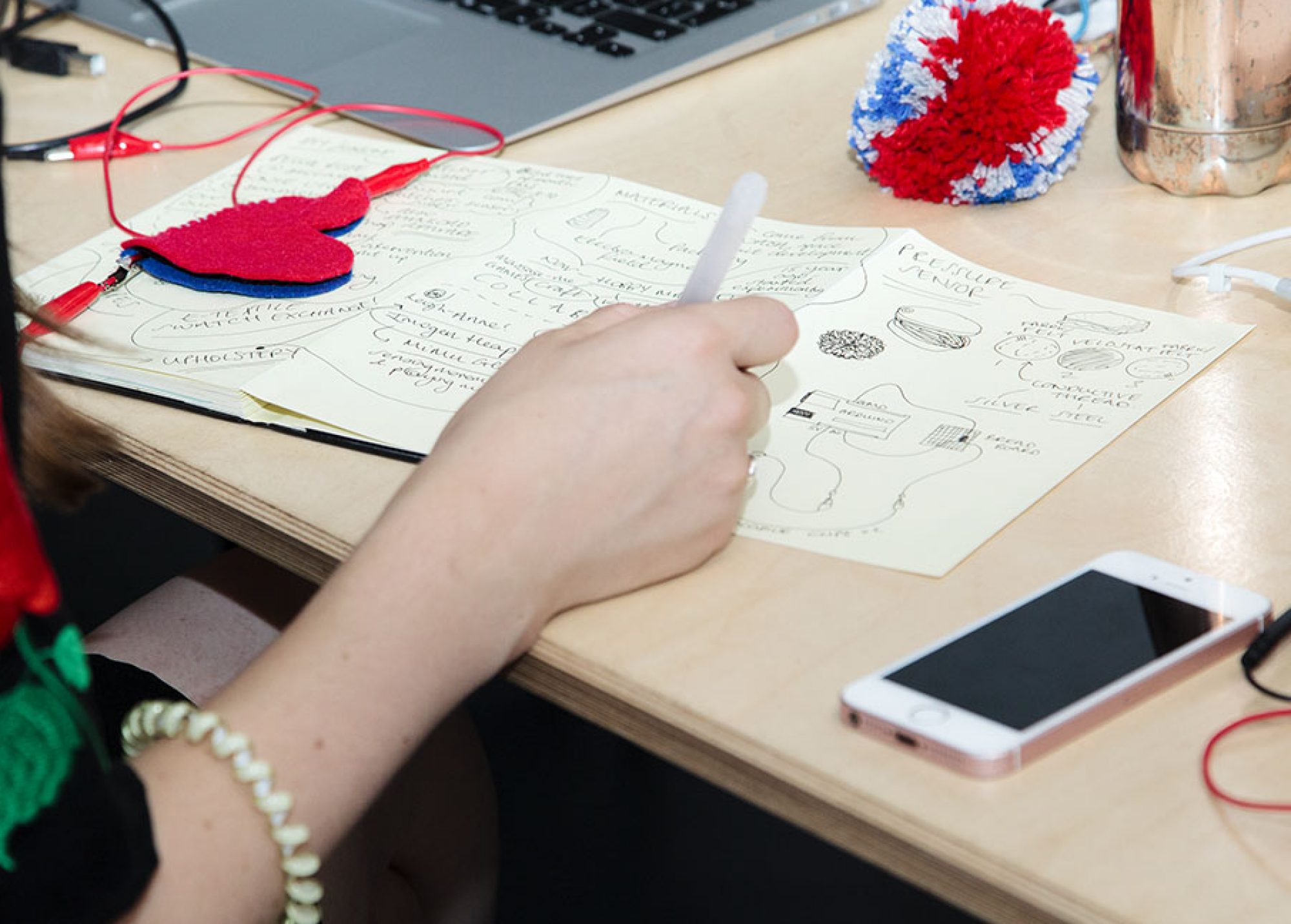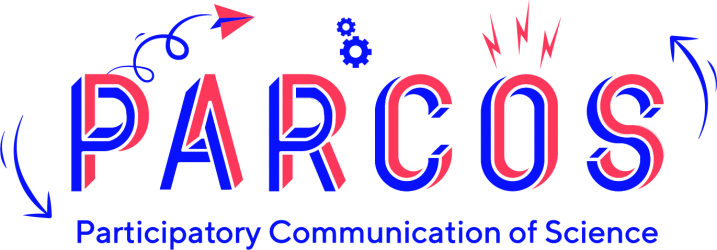This workshop is part of Communities and Technologies 2021: https://2021.comtech.community/
Practical Details
Workshop date: 21 or 22 June 2021 (to be confirmed)
Date for position papers: 20 May 2021
Notification of acceptance: 25 May 2021
This workshop will take place online. Details will be made available to participants nearer the time.
Background
In our increasingly data-driven world, humans should be enabled to engage with data in order to facilitate data sensemaking. In fact, understanding environmental data allows us to better understand our surroundings and build empathy with its requirements and challenges. In this workshop, we will explore a number of arts-based, creative and playful approaches to support data interpretation of civic data sets. Participants will deploy these approaches to overcome data literacy issues and build empathy through data.
Goals of the workshop
The goal of this workshop is to explore how to improve data inclusivity and empowerment by minimizing the barriers that people may face in their encounters with data, whilst at the same time making data more fun to use. As a first step, we will consider some arts-based and creative approaches to data sensemaking that are part of ongoing work of the organisers. Next, we will collectively explore how to extend these approaches, combining the existing knowledge of organisers with knowledge and cases brought by other participants. This will occur through interactive activities that aim to answer questions, such as:
- What are the most critical barriers against data inclusivity and empowerment?
- Which barriers are best overcome by arts-based, creative and playful approaches and which ones are better tackled through alternative means?
- What is the role does data play in building empathy towards others and the environment and what methods can support such empathy building?
- How to critically reflect participatory approaches concerning data in order to avoid organising pseudo participation: how to reflect the ownership and agency of the people/communities involved in collecting and making sense of data.
How to participate
To participate please submit a position paper by 20 May 2021. The position paper can be text (minimum 1 page, in any format), sketches, photos, videos, speculative designs or any artefact that you think will demonstrate your interest or existing research related to the theme of the workshop “Data Inclusion and Empowerment through Arts-Based, Creative and Playful Approaches”. You may submit your paper as a link to online content (e.g. video), if appropriate.
Topics of interest include:
• Narrative principles supporting data exploration
• Creative data literacies
• Playful data exploration
• Data as interactive art and museum exhibits
• Data through the senses: data physicalisation, sonofication, embodiment
• Data drama: understanding and communicating data through role play, improvisation, dance
• Data stories through sketching, comics, poetry
Submissions should be made by email by 20 May 2021 (AOE) to: natasha.tylosky[at]lut.fi
Activities
The workshop is scheduled for one full day. Activities will include:
Research exchange. The first part of the day will consist of a fast-paced research exchange where participants will get to know each other by sharing three key facts about their research. Papers/artefacts will be made available for all participants in the shared workshop space online and participants will be invited to read through them before the start of the workshop.
Participating with existing approaches. Participants will have the possibility to try out using a range of arts-based, creative and playful approaches for making sense of civic data sets, including roleplaying, improvisation, embodiment, sonification, physicalisation, narrativity, and so on.
Sandpit. Using data and stories brought by the organisers, the participants will have a chance to ideate, co-design and test out new arts-based and narrative methods for exploring and/or communicating with data. They could make sketches, short videos, clickable mockups or similar to convey their ideas. The organisers will suggest free and (where possible) online tools for these activities. Roughly, this will be structured as:
- Participants have a 45 minute break to come up with ideas on their own
- Participants work in groups to discuss and critique ideas, choosing one or more that they want to prototype
- Prototyping time: participants will work on rapidly prototyping their method.
- Share and test: groups will share and test their ideas with other groups.
Organisers
Natasha Tylosky is a researcher in Human Computer Interaction in the Department of Software Engineering at LUT University. She has a background in game design, interaction design and graphic design. In 2019 she completed her masters degree in Cognitive Systems and Interactive Media at the University of Pompeu Fabra. Natasha is interested in the intersection between art, data and science communication, and how we can apply art and game design techniques to science communication. Her research focuses on how scientific data can be communicated to the general public through interactive data visualizations, data storytelling and gamification. Natasha is currently pursing a PHD at LUT focusing on how emotional design can influence engagement with interactive data visualization.
Priscilla Van Even is a researcher at the Meaningful Interactions Lab (Mintlab) of the KU Leuven. In her research she focuses on the development of a framework for meaningful science communication. Furthermore, she taught research methodology at the University of Leuven, is experienced in the education of young (and adult) people and holds a position as a museum educator in the Musical Instrument Museum and the Royal Museum of Art and History in Brussels. Priscilla holds a Master degree in Cultural Anthropology and Development Studies, a Master degree in Philosophy, a Teaching Degree in Philosophy and Social Sciences and a Professional Bachelor degree in Elementary Education. Currently, she is a PhD candidate in Social Sciences. Her fields of expertise and research interests are philosophy of culture, research methodology, biopolitics, media psychology, cultural heritage and museums, science communication, creative research dissemination, China and Japan studies and education.
Sandy Claes holds a faculty position at LUCA School of Arts – Associated Faculty of Arts of KU Leuven, Belgium. In her research work, she focuses on the overlap between media, technology and public space. Previously, she has worked as a lead user researcher at the innovation department of public broadcaster VRT. Sandy received her PhD in Engineering Science (2017) from KU Leuven in which she focused on the design of public visualization. Her research work has been published at international, peer reviewed conferences concerning the human factor of interactive technologies and design, such as CHI, NordiCHI and DIS. She served as an Associate Chair for CHI Late Breaking Work (2019) and the full paper track of NordiCHI (2020) and INTERACT (2021). Sandy has a background as a master in audiovisual arts (2005). Her audiovisual work has been awarded on several international film festivals; such as I Castelli Animati in Rome and The international short film festival of Leuven, and has been exhibited at several international venues; such as LABoral, Madrid and Museum M, Leuven. With this mixed background of science, design and arts, Sandy approaches research projects from a multi-disciplinary viewpoint.
Anne Pässilä, PhD, MA, is Senior Researcher in the School of Engineering and Science at Lappeenranta-Lahti University of Technology (LUT), Finland and Visiting Research Fellow at the University of Chester, UK. She is a pioneer in designing and applying arts-based research approaches (ABR) and arts-based methodology (ABM) in technological and industrial management contexts. As a scholar she has published extensively on this and as practitioner is in demand for her expert facilitation skills in co-creation and innovation processes both within and beyond the academy. Her interdisciplinary and transdisciplinary work involves leading co-design processes of innovative qualitative research and development methods which she undertakes nationally and internationally. She specializes in the creation and formulation of participatory sense-making activities to allow for learning in perplexed situations; this centers around the arts-based method she has conceptualized as ‘collective voicing’. In LUT University she is a core member of the Innovation Research Team and collaborates across a wide range of faculty research teams including Software, Business & Economics, Sustainable Science.
Antti Knutas, D.Sc. (Tech), is an assistant professor in software construction at the Department of Software Engineering in LUT University. His research interests involve human factors in software engineering, computer-supported collaboration, and civic technology from a software engineering perspective. The current research area is how grassroots civic tech groups design, create, and share software. Another recent research area is how the design principles of sociotechnical software systems can promote community engagement and collaboration. His research methods include both qualitative and quantitative approaches, and he aims to provide prescriptive, actionable knowledge that will inform the future design of such systems or their software construction processes. In addition to research at LUT, he has worked with the Code for EU civic technology network in Ireland, BIGroup at Dublin City University, and the PONG labs in the University of Milan.
Annika Wolff is an assistant professor at LUT University. Her research is in the newly emerging field of human-data interaction, at the intersection between complex data, machine and human learning. Her research focuses on how people make sense of, interact with and design from complex data, such as derived from IoT and within smart cities. She is currently Co-I of H2020 (SWAFS) project ParCos on the Participatory Communication of Science, and PI of Academy of Finland project Building the Civic DataScape. She has conducted several workshops in recent years at venues such as DIS and C&T concerned with data exploration and sensemaking.

